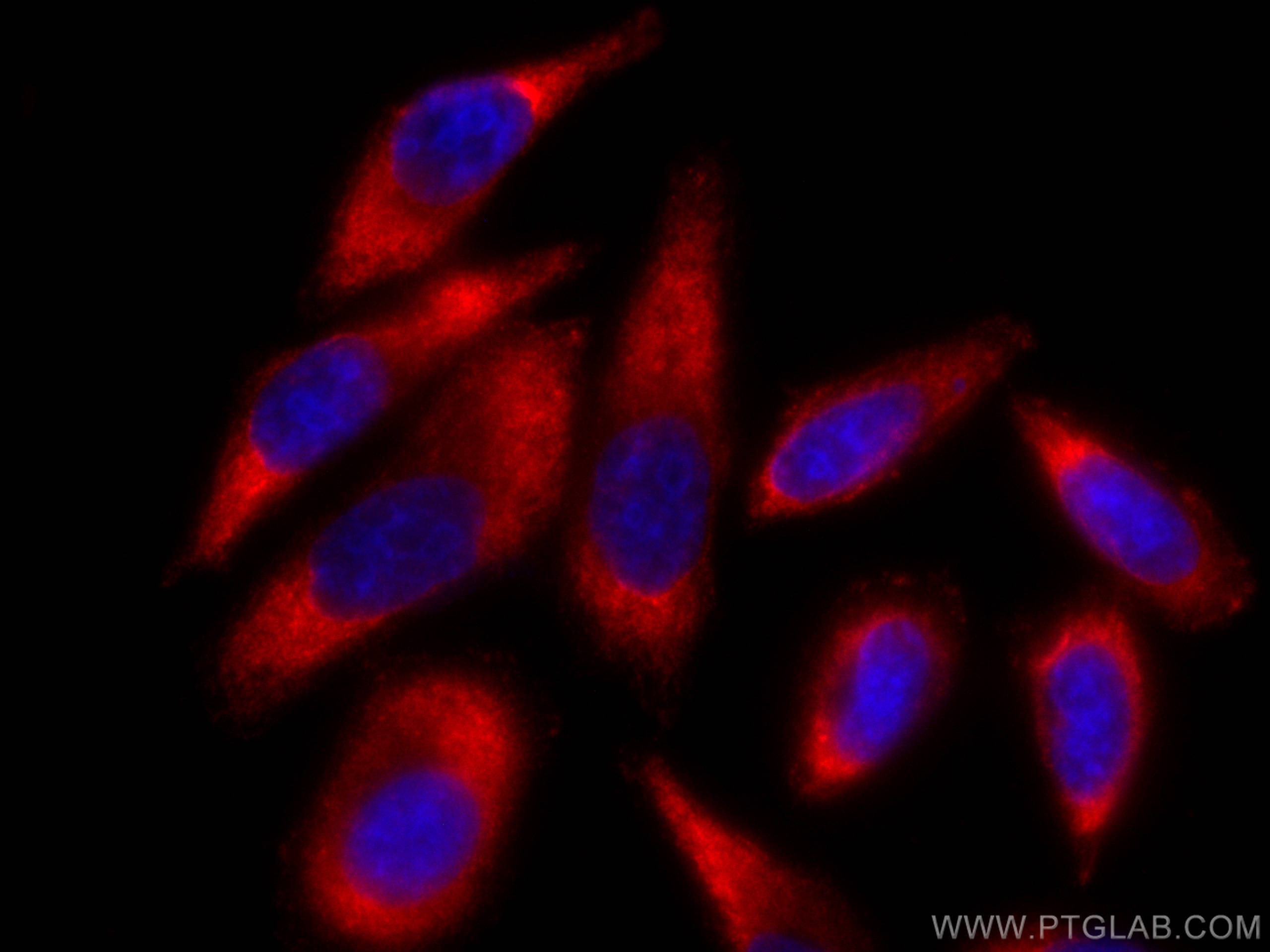Tested Applications
| Positive IF/ICC detected in | HepG2 cells |
Recommended dilution
| Application | Dilution |
|---|---|
| Immunofluorescence (IF)/ICC | IF/ICC : 1:50-1:500 |
| It is recommended that this reagent should be titrated in each testing system to obtain optimal results. | |
| Sample-dependent, Check data in validation data gallery. | |
Product Information
CL594-66261 targets Serpin E1/PAI-1 in IF/ICC applications and shows reactivity with human, pig samples.
| Tested Reactivity | human, pig |
| Host / Isotype | Mouse / IgG1 |
| Class | Monoclonal |
| Type | Antibody |
| Immunogen |
CatNo: Ag22411 Product name: Recombinant human SERPINE1 protein Source: e coli.-derived, PET28a Tag: 6*His Domain: 24-158 aa of BC010860 Sequence: VHHPPSYVAHLASDFGVRVFQQVAQASKDRNVVFSPYGVASVLAMLQLTTGGETQQQIQAAMGFKIDDKGMAPALRHLYKELMGPWNKDEISTTDAIFVQRDLKLVQGFMPHFFRLFRSTVKQVDFSEVERARFI Predict reactive species |
| Full Name | serpin peptidase inhibitor, clade E (nexin, plasminogen activator inhibitor type 1), member 1 |
| Calculated Molecular Weight | 402 aa, 45 kDa |
| Observed Molecular Weight | 50 kDa |
| GenBank Accession Number | BC010860 |
| Gene Symbol | PAI-1 |
| Gene ID (NCBI) | 5054 |
| RRID | AB_2883545 |
| Conjugate | CoraLite®594 Fluorescent Dye |
| Excitation/Emission Maxima Wavelengths | 588 nm / 604 nm |
| Form | Liquid |
| Purification Method | Protein G purification |
| UNIPROT ID | P05121 |
| Storage Buffer | PBS with 50% glycerol, 0.05% Proclin300, 0.5% BSA, pH 7.3. |
| Storage Conditions | Store at -20°C. Avoid exposure to light. Stable for one year after shipment. Aliquoting is unnecessary for -20oC storage. |
Background Information
SERPINE1, also named as Plasminogen activator inhibitor type 1 (PAI-1), is a member of the serine protease inhibitor (SERPIN) superfamily. PAI-1 is the principal inhibitor of tissue plasminogen activator (tPA) and uPA, and hence is an inhibitor of fibrinolysis. Defects in this gene are the cause of plasminogen activator inhibitor-1 deficiency (PAI-1 deficiency), and high concentrations of the gene product are associated with thrombophilia.
Protocols
| Product Specific Protocols | |
|---|---|
| IF protocol for CL594 Serpin E1/PAI-1 antibody CL594-66261 | Download protocol |
| Standard Protocols | |
|---|---|
| Click here to view our Standard Protocols |




